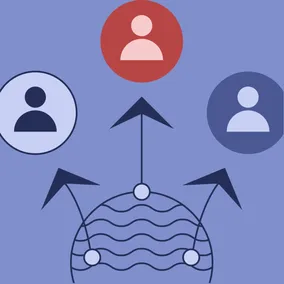Talking Money: Why You Should Share Your Project Budget Upfront

Sarah Evans, Former Digital Strategist
Article Category:
Posted on
Navigating budget conversations can be tricky. Our business development team shares some insights about why transparency is important and how to approach it if you're stuck.
Money. It’s the engine that drives businesses, but it can also be the elephant in the room. When we meet a potential client, one of our initial questions is “What’s your budget?” Some don’t know what they’re willing to spend, some don’t want to share, some wonder why we’re asking before they even know if we’re a good partner to work with. In this article, I'll share a few insights from our business development team on how to think about your budget and the value in sharing it upfront.
“We don’t have a budget.”
When you’re still researching options for your project and have no idea what you should be spending, it can feel impossible to answer questions about cost. However, if I were to ask if you’d be prepared to spend 100 million dollars, I bet you’d be able to tell me that was out of budget. So how do you answer when your budget is a question mark somewhere between $0 - $99,999,999?
Think about a broad range you could reasonably justify to others in your organization. If it’s a number you’d be willing to share with them, it’s probably a good starting point for figuring out what level of resources is likely to be realistic.
Another tactic is to share the amount over which you can’t imagine spending. Yes, the $100 million figure is unrealistic, but what about $500,000 or $250,000 or $50,000? Checking your gut against various benchmarks can help you articulate your financial expectations, even when the budget hasn’t been decided upon.
“If I share a number, we’ll end up overpaying.”
This is a common concern for clients, and an understandable one — no one wants to pay more than necessary to achieve their goals! At Viget, we use time and budget as our primary guidelines when planning projects. If we know you have 3 months and $X allocated, we’re going to think of the best ways to accomplish your core business goals within those parameters, having open discussions with you about priorities and potential trade-offs along the way.
Rather than withholding your budget in an effort to keep cost estimates low, share a range you’re comfortable with and ask to see more than one cost option. Comparing a higher-cost and lower-cost option side-by-side can facilitate discussion around your priorities and help you better understand what tradeoffs might need to be considered.
“Why should we tell you now? We don’t even know you!”
By this point, you may have an idea of what I’m going to say. You should share because it’s a key data point that helps us align expectations, discuss priorities, and assess fit; but most importantly, it can save everyone a lot of time! If a potential client’s budget isn’t aligned with our costs, it’s better for everyone to discover that quickly. Once we know, we can refer you to a trusted partner or dig into questions you might have about how to find a good agency partner.
I hope this quick glimpse into how we think about budget and why it’s important to discuss upfront is helpful. If you have an audacious idea you want to explore, let us know; just come ready to talk budget!